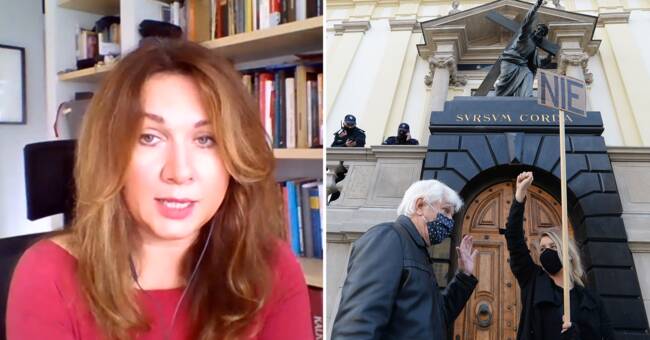Those who want to see stricter abortion bans have now toned down the religious arguments, says Elzbieta Korolczuk.
She compares the rhetoric with when Poland introduced an abortion ban in 1993 but also in 2016. At that time, the ruling party, Law and Justice, tried to remove the possibility of abortion even in cases where the fetus was found to have serious injuries.
- Anti-abortion activists try to argue that abortion is harmful to women.
They claim that women who perform an abortion can suffer from "abortion syndrome", something that is not supported by science.
Equated with the disabled
Elżbieta Korolczuk's research includes social movements and reproduction policies.
She describes herself as a women's rights activist and has participated in protests for free abortion.
- Another strategy used now is to equate injured fetuses with disabled people so that they can be seen as a minority group and protected by the state.
Constitutional Court said no to exceptions
Protests in Poland escalated last week when the Polish Constitutional Court ruled that abortion in the event of serious birth defects was contrary to the Polish constitution.
Already the day after the court's ruling, there were reports that pregnant women were denied at the door despite having papers on serious birth defects, writes the newspaper Gazeta Wyborcza.
In Poland, abortion is only allowed in case of danger to the woman's health, in case of incest or rape and if the fetus has serious injuries.
According to statistics from the Polish Health Authority, 1110 legal abortions were performed in Poland in 2019. Almost all abortions, 98 percent, were performed due to birth defects.

